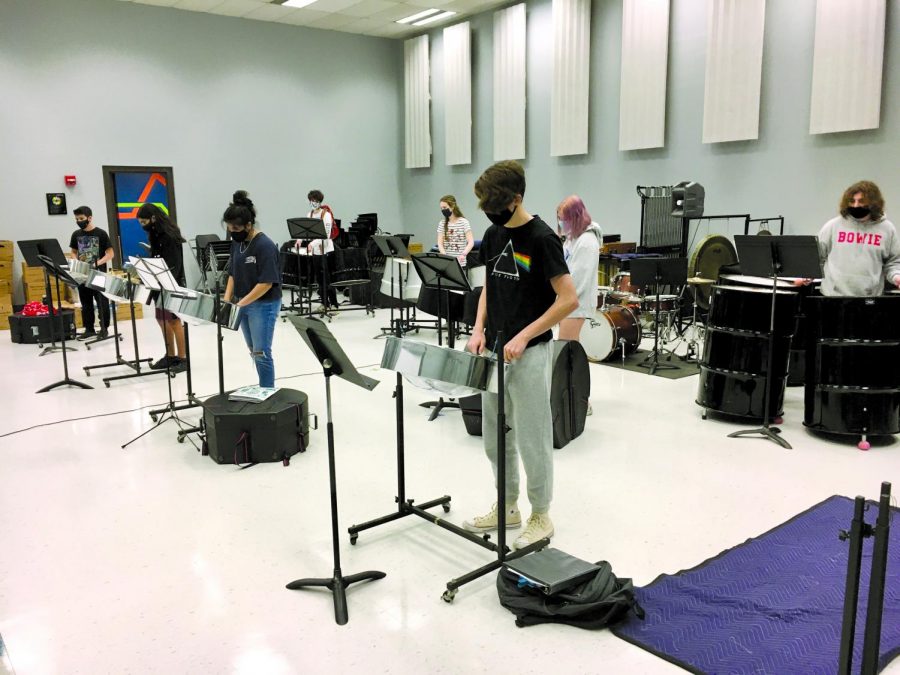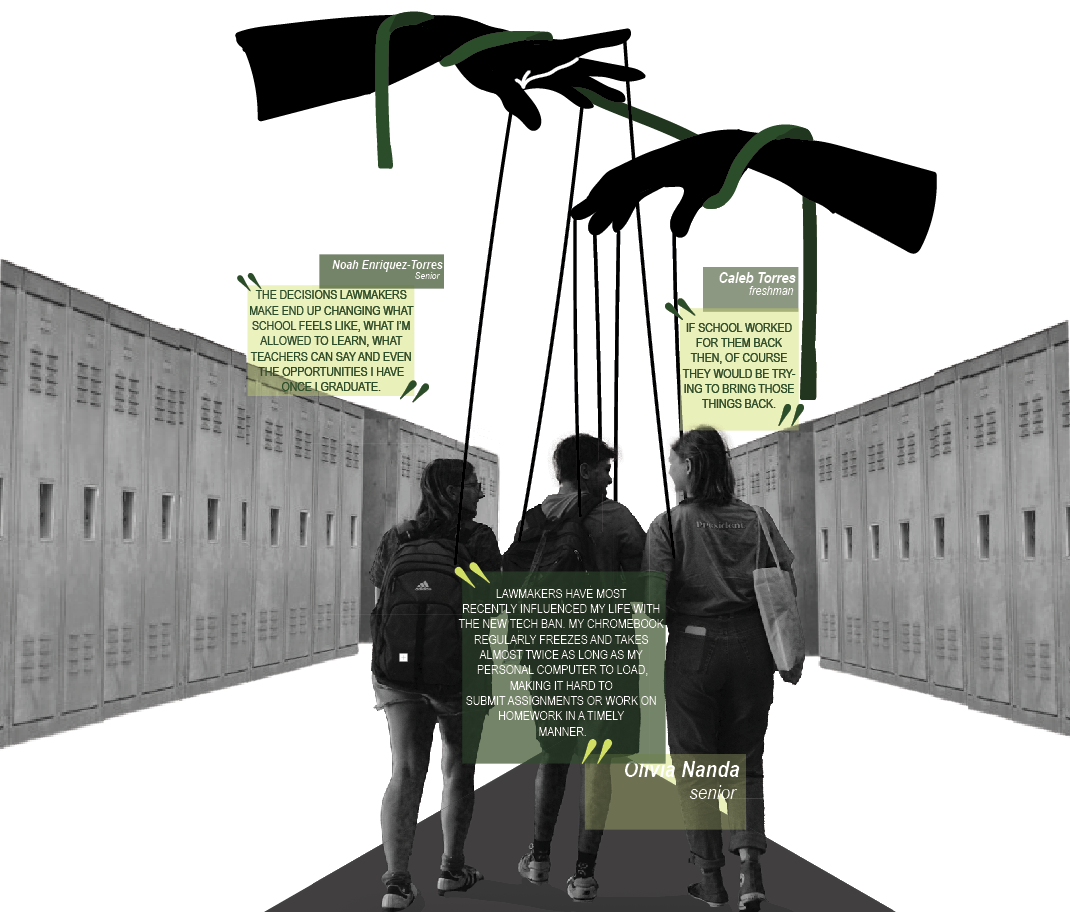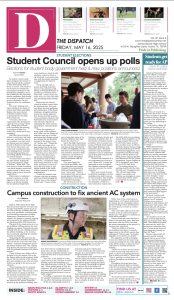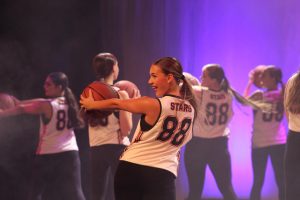Steel drums adjusts to virtual practices
PHOTO COURTESY OF Anthony Paxton
PRACTICING THE SONGS: Students in the steel drums class get together to practice playing their music. This was the first in-person rehearsals that was held and students were given the chance to either stay remote or practice in person.
March 30, 2021
From the array of drums organized across the hall, a melody is given birth by the strikes of many mallets. This music is thanks to professional steel drum composer and educator CJ Menge who shared his passion for steel drums with many throughout Austin including Bowie’s own steel band he started more than 20 years ago.
One of the most attractive aspects of the young instrument from Trinidad and Tobago is the tropical melody it produces despite being a metallic percussion instrument.
“More often than not people think of it as an island type instrument,” steel drum teacher Anthony Paxton said. “People enjoy it because it’s not something that’s as common at concerts.”
The uniqueness and novelty of the instrument allows the steel drum bands to often practice and perform separately from most of the rest of Bowie’s massive band programs.
“I didn’t want to do marching band since it seemed like a big commitment, but I still want to take a music class, so I chose to do steel drums because I tried it in middle school and liked it,” senior Olivia Gendron said.
Despite being separate when it comes to practicing, occasionally all the bands perform together.
“We usually do our holiday concert as one mass concert, so everybody performs at the same concert. Other than that, we usually have our own concerts,” Paxton said
There are five types of drums: leads, double teners, double seconds, cellos, and bases. Each drum or pan has its own note range and purpose in different songs that influence the preference of each student.
“I’ve played bass and cello in the past, but I don’t like moving my body to each drum because I often turn around and miss a note,” sophomore Sarah Jandt said. “I like leads because the pan is right in front of me and my hands are in the same playing area so I don’t miss anything.”
Last year, the bands were primarily split into an intermediate and advanced band. There was also a third band for freshmen to introduce them to the instruments.
“The advanced band is for people who are extremely good and very devoted to steel drum,” Jandt said. “The people in the intermediate band train for the whole year and then audition for next year’s advanced band at the end of the year.”
The steel bands play a wide variety of music from traditional pieces from Trinidad and Tobago to popular songs on the radio. Since many of the songs that they play are written by Menge, he occasionally visits a class and teaches it.
“I think it’s pretty great that we get to have CJ come out and help us practice because he has more insight for us learning his pieces since he wrote them,” Jandt said.
Because of the pandemic, the bands were forced to take home their instruments. Although they were able to bring home the instruments, each student now has to practice playing individually.
“It’s hard to play the parts by myself,” Gendron said. “It’s easier when we have a big group of people all playing the same thing so we can listen to each other while we’re playing.”
The bands still meet regularly to practice virtually during their class periods, but the limitations of the Zoom platform still make it difficult.
“There are background noises which make it hard to tell if I’m playing the notes correctly or not, especially if it’s staticky,” Jandt said. “[Class] is also in the morning, so I have to keep quiet so I hopefully do not wake up my parents.”
Additionally, Paxton decided last year to integrate the freshman band into the intermediate band this year since there weren’t enough freshman signing up for the class.
“A lot of people probably don’t know about steel drums, and some people who aren’t interested in doing concerts end up quitting,” Gendron said.
Jandt believes that merging the two bands was a beneficial change that helps balance the varying levels of skill between new and experienced students.
“For me, this year has been a lot easier because I get a review of what we learned last year while we still move forward at a steady pace,” Jandt said.
Regardless of the setbacks and adjustments of being virtual, Paxton still plans on having the steel bands perform at a concert for the first time this year in the near future.
“With the school district telling everybody to stay home, we have not really started in person rehearsals yet,” Paxton said. “We hope to get those started in February and then have a concert in March, hopefully with the jazz bands.”









